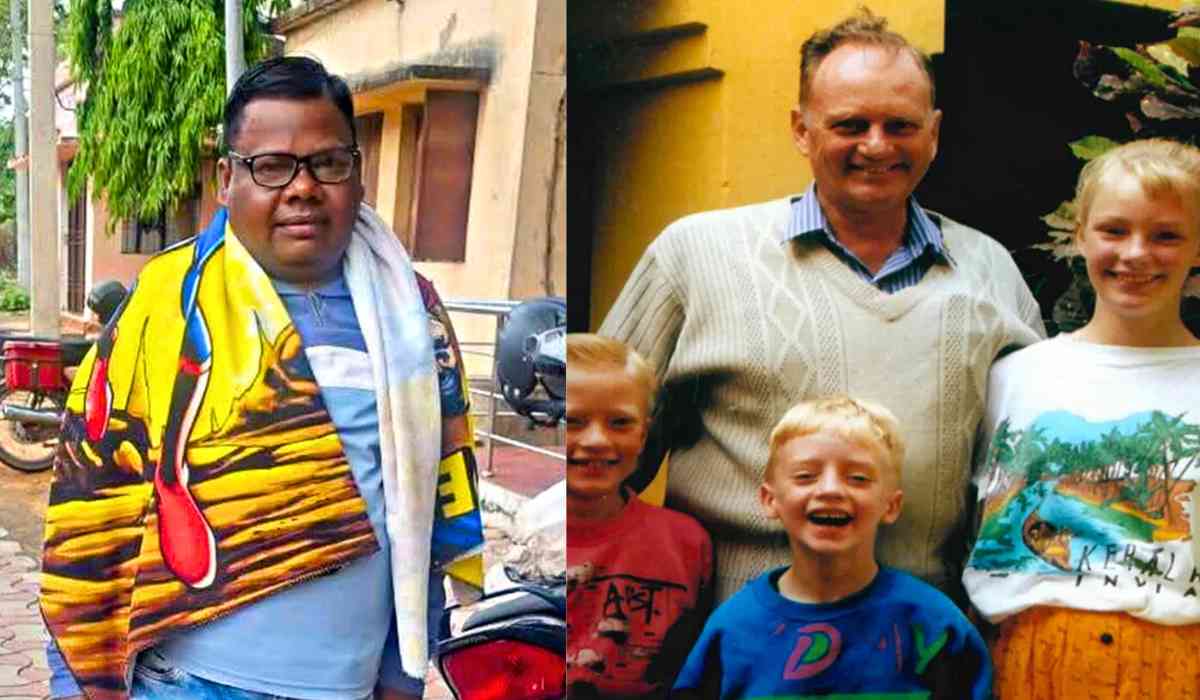The recent release of Mahendra Hembram, one of the convicted murderers of Australian missionary Graham Staines and his two young sons, has stirred intense debate across India and beyond. Hembram walked free from Keonjhar jail in Odisha on April 16, 2025, after serving 25 years behind bars, his release granted on the grounds of good behaviour during incarceration.

The Crime and Conviction
In January 1999, Graham Staines and his sons Philip (10) and Timothy (6) were brutally murdered when a mob set their vehicle on fire while they slept inside it in the tribal region of Odisha. The attack was linked to communal tensions and allegations of religious conversion, a claim that has been widely disputed. Hembram, along with the main accused Dara Singh, was convicted for his role in this horrific crime that shocked India and the world.
The Release and Its Celebration
Hembram’s release was officially approved by the Odisha State Sentence Review Board following prison rules that allow premature release for good conduct. Upon his release, Hembram was garlanded and felicitated by supporters, including groups affiliated with the Sangh Parivar, such as the Vishwa Hindu Parishad (VHP), which welcomed the decision as a "good day". This public celebration of a convicted murderer has raised serious ethical and societal questions.

Perspectives on the Release
Supporters of Hembram’s release argue that the criminal justice system allows for rehabilitation and that good behaviour in prison merits freedom. Hembram himself claimed he was falsely implicated and expressed opposition to religious conversions and cow slaughter, suggesting a complex personal narrative.
However, many critics see the celebration of Hembram’s release as deeply troubling. They argue that honoring a person convicted of such a brutal, hate-fuelled crime sends the wrong message about justice and accountability. The act of garlanding a convicted murderer, especially by political groups, risks glorifying communal violence and could potentially incite further social division.
The Broader Social and Political Context
The release comes amid ongoing debates about justice in cases involving communal violence in India. Dara Singh, the main accused who led the mob, remains in jail, though there is political pressure and legal petitions for his release as well. The public reaction to Hembram’s release reflects the complex intersection of law, politics, and communal identities in the country.
The case also recalls similar controversies, such as the release and public celebration of other convicts involved in communal violence, which have sparked national outrage and judicial scrutiny.

How Is This Acceptable in a Decent Society?
This question strikes at the heart of the controversy. A decent society is expected to uphold justice, protect innocent lives, and condemn hate-driven violence unequivocally. The brutal murder of an innocent family, including children, was a crime that shocked the conscience of society worldwide. The release of one of the perpetrators, followed by public celebrations, challenges the values of justice and empathy.
On the other hand, the legal system’s role includes rehabilitation and the possibility of reform. If a convict demonstrates genuine change, the law provides for their release. Yet, the optics of celebrating such a release, especially when the crime involved communal hatred, can be deeply hurtful to victims’ families and communities and may undermine social harmony.
Conclusion
The release of Mahendra Hembram after 25 years for good conduct is legally justified under prison rules. However, the public garlanding and celebration of a convicted murderer of a missionary and his children raise profound ethical questions about justice, societal values, and communal harmony. It highlights the ongoing tensions in India’s struggle to balance legal rehabilitation with the moral imperative to remember and condemn acts of communal violence.
As society reflects on this event, it is essential to foster dialogue that respects the rule of law while upholding the dignity of victims and promoting peace and understanding among communities. Only then can a society truly be called decent and just.
With inputs from agencies
Image Source: Multiple agencies
© Copyright 2025. All Rights Reserved Powered by Vygr Media.























